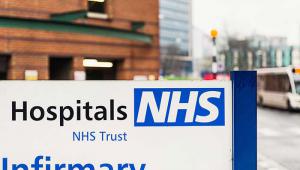In its first ‘roadmap’, NHS Improvement, which will bring together the work of provider regulators Monitor and the NHS Trust Development Authority from April, said it would focus on tackling the current operational and financial challenges facing the health service to 2020. Providers recorded a deficit of £1.6bn in the first six months of the financial year, £358m worse than planned, according to figures published in November.
The Implementing the Forward View plan stated that NHS Improvement would work with providers to deliver financial balance in 2016/17.
“Our focus must now be on returning to financial balance, without compromising patient care,” it stated. “Providers need to achieve the best possible out-turn position in 2015/16 and develop a plan for 2016/17 based on agreed control totals.”
Changes to NHS tariff prices and the Sustainability and Transformation Fund created with funds pledged by Chancellor George Osborne at the Spending Review, provide the financial framework to deliver this, it stated.
The document acknowledged that some changes, such as caps on agency spending, would be “uncomfortable” for some providers. “However a rapid return to financial balance for the sector as a whole, and for as many providers as possible, is critical,” it added.
“NHS Improvement will be providing intensive support to those providers with the biggest financial deficits that often face large, long-standing, structural challenges that require a corresponding structural solution.”
Elements of the roadmap also include what NHS Improvement calls “transformation for sustainability”, with providers working with partners to create a new collaborative approach to delivering health and care across a local system, as well as moving rapidly to creating new models of care. This must include an “emphasis on the required speed” for any reorganisations in order to get on a path to long-term sustainability.
NHS Improvement chief executive Jim Mackey said the new watchdog would put clinical expertise at the heart of its work.
“NHS Improvement will stand shoulder-to-shoulder with the service, whether that is in getting a grip on the financial situation or providing stability and offering support as our NHS seeks to change and improve to meet the needs of its patients,” he stated.
“That’s why we’re setting up an improvement faculty to advise and lead the creation of an improvement movement across the NHS. We’ll also be establishing networks of clinical leaders across the service to work alongside our medical and nursing directors.”
The watchdog also announced appointments to its executive team today. This includes Bob Alexander, current deputy chief executive of NHS TDA, who has been named executive director of resources and deputy chief executive of NHS Improvement. Stephen Hay, currently managing director of provider regulation at Monitor, is named executive director of regulation and also deputy chief executive.
Other appointments include Kathy McLean, who has been named executive medical director, having been medical director of NHS TDA, while Ruth May, the nursing director at Monitor, has been named executive director of nursing.
Adam Sewell-Jones, currently executive director of provider sustainability at Monitor, will become executive director of improvement at the new body.
Responding to the appointments, health secretary Jeremy Hunt said there was a shared ambition across the sector for the NHS to become the world’s largest learning organisation.
“Under the expert leadership of Jim Mackey and his executive team, NHS Improvement will ensure that providers get the support they need to provide excellent care for patients every day of the week,” he added.




















